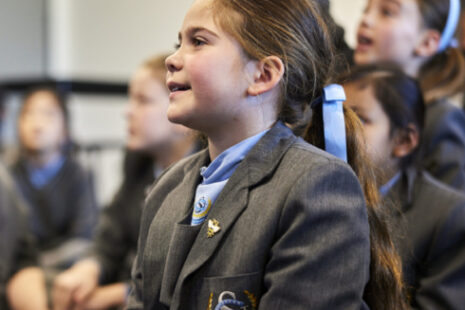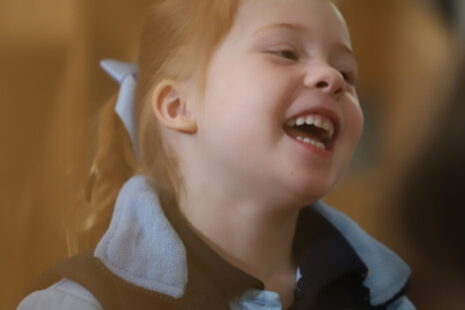Have our lifestyle changes affected our children’s physical development?

I remember when climbing trees, swinging upside down on the monkey bars and playing gutter ball were a normal part of child’s play. As a child, my parents would send us outside to play. We had a sand pit, cubby house and a swing set.
The thudding noise of a ball being constantly hit against the wall with a cricket bat, or skipping ropes turning with children skipping or playing elastics were all common back in the day. Unfortunately, in the world we live in today, much of children’s playtime is electronically stimulated. We are becoming less physical and therefore missing out on so much learning from physical activity.
Physical movement is pivotal in a child’s life and is crucial to their physical development. As a physical education teacher, I have noticed a general decline in fundamental motor skills in many children. Experiences we once took for granted through childhood play and ‘rough and tumble’ play with family are now having to be taught through physical education classes. In my classes with children aged three to six years, I have noticed more children are lacking fundamental movements. The basic experiences and exposure to simple movements such as swinging, rolling, kicking, jumping and even going upside down are lacking. The fun, rough and tumble play gives children the opportunity to experience being swung, held upside down, wrestled with and tickled, but reassuring them at the same time.
According to a study by the University of Arkansas, children’s pleasure in rough and tumble play seem to be more intense when they play with their fathers. The study suggests that men tend to excite and surprise their children during play. Whilst playing, fathers maintain a sense of safety and security and promote problem solving and learning to deal with unexpected events. Fathers’ physical play with toddlers appears to enhance their cognitive and language development with one study revealing the more fathers played with their toddlers at 14 months, the higher the child’s cognitive and language scores at age 24 months[1].
I believe technology has its place in education but children should be given more opportunities for play whether it be outside or inside. When outside, give them a ball to bounce or a rope to skip with. Let them climb a tree or swing on the bars. We have a tendency to caution our children before they play, in particular girls. This can lead them to become anxious when playing. Rough play helps children to develop resilience. It helps them to bounce back from failures and to adapt to unexpected situations. It also allows them to cope with pain when they may accidently hurt themselves. I know we want the best for our children but not at the expense of under equipping them with the skills they need which they must gain through activity. Let them be risk takers and this will teach them so much more.
Free outdoor play is an important part of a child’s development. A study titled Active Play and Healthy Development by J Goldstein (2012) found that outdoor play and brain development does not stop once a child enters school, in fact, outdoor play is equally important for children of all ages. Research and studies show us that active, outdoor, free play can lead to improved academic performance.
Being active is so beneficial to young children for their overall development. An active confident mover will become a better learner. Childhood is the time to learn, explore and develop. Find the time to play at home with your young ones, give them the opportunity to learn through play with you and watch them bloom. Childhood passes so quickly so seize every opportunity to make a difference in your child’s life.
References
- Paquette D. Theorizing the father-child relationship: Mechanisms and developmental outcomes. Hum Dev. 2004;47:193-219
- Roggman LA, Boyce LK, Cook GA, Hart AD. Observational data on father play with infants: Challenging to get but valuable to have. In: Lamb-Parker F, Hagen J, Robinson R, Rhee H, eds. Head Start’s Sixth National Research Conference, the First Eight Years: Pathways to the Future, Implications for Research, Policy, and Practice. New York: Columbia University; 2002:471-472
- http://ucy.ac.cy/nursery/documents/Agrio_Pexnidi_sta_Nipia.pdf
- http://www.southflorida.com/sfp-get-your-kids-upside-down-backward-and-learning-20170301-story.html
Further reading:
- https://deeprootsathome.com/screen-time-childs-brain/
- https://www.livestrong.com/article/561008-the-physical-impact-of-technology-on-children/
- https://medium.com/thrive-global/will-technology-ruin-your-childrens-development-663351c76974
- https://deeprootsathome.com/roughhousing-kids-emotional-development/





